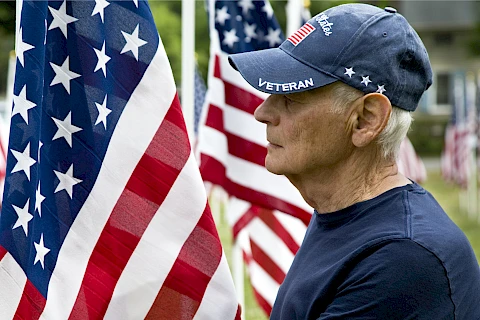
Post-traumatic stress disorder (PTSD) is a challenging, often debilitating condition, especially for our nation's senior veterans who have served bravely. Addressing PTSD and finding effective coping strategies is crucial for their overall well-being, quality of life, and the continued enjoyment of their golden years.
Senior Helpers Bergen County will provide guidance and resources for senior veterans battling PTSD. We'll explore the specifics of PTSD as it affects senior veterans, discuss various therapy options, highlight useful coping strategies, and emphasize the significance of building a solid support network.
PTSD in Senior Veterans
PTSD affects people differently, and for senior veterans, the impact may be different compared to the general population. They may have lived with this condition for many years, often undiagnosed, and triggers may be deeply rooted in their past military experiences.
Symptoms of PTSD can range from flashbacks, nightmares, and intrusive thoughts to feelings of isolation, irritability, and heightened anxiety. Recognizing these symptoms is the first step towards seeking assistance and improving their quality of life.
Therapy Options for Senior Veterans With PTSD
There are several therapy options available for senior veterans experiencing PTSD, and each one can be tailored to the individual's specific needs. Cognitive Behavioral Therapy (CBT), for example, can help veterans identify negative thought patterns and develop healthier coping mechanisms. Prolonged Exposure Therapy, on the other hand, allows them to confront and gradually gain control over their traumatic memories within a safe and supportive environment. Lastly, Eye Movement Desensitization and Reprocessing (EMDR) is a technique that can help process traumatic experiences more effectively. Always consult with a healthcare provider to understand which therapy option would be best suited to each individual's circumstances.
Coping Strategies for Senior Veterans With PTSD
Taking care of one's overall health is a key component of managing PTSD. Regular exercise, maintaining a balanced diet, and getting enough sleep can help in managing symptoms. Mindfulness techniques such as deep breathing and meditation can also be beneficial in calming the mind and reducing anxiety levels. Understanding what triggers PTSD symptoms can enable veterans to better manage their stressors, whether that involves avoiding certain situations or learning new ways to cope when faced with triggers.
Building a Support Network
Connecting with family and friends can provide immense emotional comfort and relieve feelings of isolation. Joining support groups and veteran communities can also be very helpful.
These groups allow veterans to share their experiences in a safe environment, find validation, and learn from the experiences of others who are in similar situations. Professional caregivers can provide additional support, helping veterans with daily tasks and ensuring they have the resources necessary for managing their condition.
Enjoy Compassionate Senior Care Services
The journey through PTSD is challenging, but there is hope. Remember, professional help, self-care, and a supportive network can make a significant difference. At Senior Helpers Bergen County, we are committed to supporting our senior veterans in their battle against PTSD. We cater to the needs of those living in Passaic, Clifton, Hackensack, Fort Lee, and many more areas in Bergen County. Contact us to learn more about our senior care services!